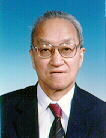

Yang Jiachi (1919-2006) is a native of Wujiang, Jiangsu Province. He is aerospace technology scientist and space automatic control scientist. He graduated from Electrical Engineering Department, Shanghai Jiaotong University in 1941 and received his doctorate of Applied Physics of Harvard University in 1949. Beginning from 1968, he worked for the development of satellites at the Chinese Academy of Space Technology. He was elected to the Chinese Academy of Sciences in 1980 and a member of the International Academy of Astronautics in 1985.
Yang was a founder of Chinese automatic checkout science and space technology. He was advisor of Science and Technology Committee of Ministry of Aeronautics and Astronautics Industry and chief designer of satellites of "Shijian" series in 1991. For a long time Yang engaged in the development of instrument and control systems used in consecutive rocket and nuclear tests. For over thirty years, he also participated in scheme argumentation work of China's space program. Among his other accomplishments, Yang supervised the research and development of a man-made satellite gesture control system and contributed significantly to the development of a three-axis stable retrievable satellite and scientific detecting satellite, which won State Science and Technology Advancement Award, Special Class in 1985. The retrievable satellite gesture control system and data analysis indexes were up to the international standard at that time. CAMAC system he proposed and participated in achieved great success in both military and civilian use, which won State Science and Technology Advancement Award, Second Class. Together with Wang Dahang, Wang Ganchang and Chen Yunfang, he submitted the proposal of developing high technology in China (the so-called "863 program") to the central government. This program has made important achievement, making China one of new and high technology owners in the world. He was awarded Two Bombs and One Star Meritorious Medal in 1999. In 2000, together with Wang Dahang and other scientists, Yang proposed to develop automobile electronic information industry in China and to make China major play in world automobile computation platform in future. He also directed key project on checkout technology and instruments necessary for explosion experiment of atomic bomb. He published over 30 pieces of academic thesis, including "A Review of Chinese Spacecraft Control" and "The Feasibility Studies of Future Chinese Space Application Systems Programs". He was awarded Ho Leung Ho Lee Foundation Science and Technology Advancement Award in 1999.